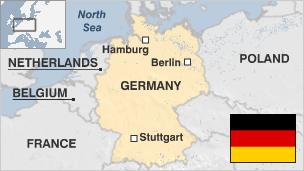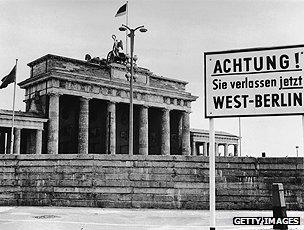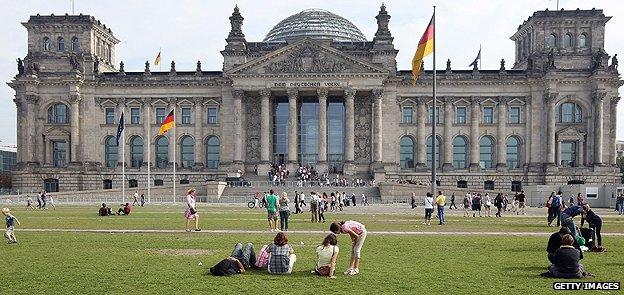Germany country profile full overview
- Published

Germany is Europe's most industrialized and populous country. Famed for its technological achievements, it has also produced some of Europe's most celebrated composers, philosophers and poets.
Achieving national unity later than many other European nations, Germany quickly caught up economically and militarily, before defeats in the First and Second World Wars left the country shattered, facing the difficult legacy of Nazism, and divided between Europe's Cold War blocs.
Germany rebounded to become the continent's economic giant, and a prime mover of European cooperation. With the end of the Cold War, the two parts of the country were once again united, although the economy of the former East Germany continues to lag behind the rest of the country.

The Berlin Wall: The fall of the city's East-West barrier preceded German reunification in 1990
Germany's economic success since World War Two is to a large extent built on its export industries, fiscal discipline, and consensus-driven industrial relations and welfare policies. It is particularly famed for its high-quality and high-tech goods.
Germany's export-dependent economy was initially hit hard by the global financial crisis of 2008-9, which triggered the worst recession since 1949. But by 2010 its exports had helped the country to rebound more robustly than most other EU members.
The pain of Germany's Nazi legacy remains a sensitive issue. Out of the devastation of the Second World War grew an awareness of the need to guard against any such catastrophe recurring in Europe.
In the 1950s Germany was one of the six founding nations of the European Economic Community from which the European Union eventually developed and in which Germany is a key player. Franco-German cooperation was central to European economic integration in the 1980s and 1990s.
After decades of lagging behind its economic strength, Germany's international profile has been growing. The country sent peacekeepers to the Balkans and its forces have been involved in operations in Afghanistan. Germany has also taken a leading role in dealing with Russia's armed intervention in Ukraine.
The government's decision in 2015 to allow large numbers of migrants from the Middle East and Africa has led to considerable social and political tension, and spurred the anti-migrant Alternative for Germany party's parliamentary breakthrough in the elections two years later.

Germany's parliament is housed in the Reichstag building in the capital Berlin